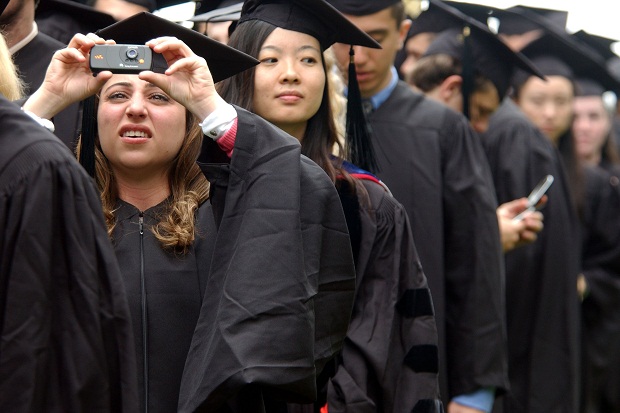People get competitive about the difficulty of their degrees. The accepted line at Oxford is that Science is harder than Arts, and everything is harder than PPE – three years of sleeping until 1pm and waffling about Mill’s Utilitarianism, and you still get to tell employers that you have a degree in economics.
It’s probably true about the PPEists, but the Arts vs. Science stuff is a myth. Scientists’ claim to the tougher time is based on the fact that they have more contact hours. More contact hours, we are often told, make a more serious degree: it was reported as a scandal in May when Bahram Bekhradnia, director of the Higher Education Policy Institute, said the average British undergraduate gets less than 14 hours a week with academic staff.
I have three-and-a-half contact hours a week. Two of these are just ‘advisable’, and are sacrificed to essay crises with some regularity. My neighbour, an engineering student, estimates that he has 20, all of which are compulsory and some of which involve getting up before 9am. Cut and dry, then – Historians have it easier.
I beg to differ. If the engineer next door ‘does no work’, he still goes to lectures and labs – he does those 20 hours by default. If I do no work, I genuinely do no work. I could skive my lectures, read no books and fail to write my essay – all I’d have on is an hour-long tutorial which, given my lack of preparation, I might as well miss too.
Us Arts students have to decide to work. We have to get ourselves up, preferably in the morning. We have to choose to do today what we could do at 2am tomorrow. We have to turn down a pub trip in favour of an evening alone with our books. Hungover and exhausted, who wouldn’t rather sit watching acid drip into alkaline for a couple of hours, rather than trawling through Asser’s Life of King Alfred.
On the rare occasion that they bump into an Arts student (almost certainly a rower) as they head off for those 9am starts, the Scientist will make a ‘jokey’ remark about how much harder they have to work. The guilt-racked Historian or English student will play along: “Yeah, but at least you’ll get a job at the end!”. Science is more employable than Arts: myth number two.
Scientists, we are told, are better prepared for the workplace. They are logical thinkers. They know things that are of practical use. They have meticulous attention to detail. They know how to use a calculator.
When working for Morgan Stanley (god forbid), my friend’s knowledge of isomeric bond formation won’t prove any more useful than my understanding of the tenth-century Benedictine Reform. Any deficiencies in the calculator department, us Artists more than make up for with our ability to structure our own time, break down big tasks and think creatively. Show me a Chemist who can pretend to be an expert on anything after 10 hours reading and 4 hours sleep.
And employers recognise this, too. No more than half of the top twelve degree subjects for getting a job are science-based, and ‘historical and philosophical studies’ comes in at number nine on the list – above Architecture. Seven of the subjects are vocational, and two out of the remaining five are Arts. Last year, 85.4 per cent of ‘historical and philosophical studies’ graduates were in work or further study within six months of finishing their degrees. The year before, it was 90 per cent.
Science is great, but an Arts degree is neither the slackers’ option nor a route to unemployment.







Comments